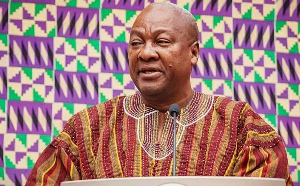The Commissioner of the Customs Division of the Ghana Revenue Authority, Col. Kwadwo Damoah has implored all exporters to secure the necessary licenses, permits, certificates and other vital documents from designated ministries, departments and agencies.
He said this during the business forum on the AfCFTA, held in Accra.
He said exporters or their agents, who want to operate within the AfCFTA will have to complete and submit the African Continental Free Trade Area Exporter Registration Form, followed by mandatory checks and approvals by the Ghana National Chamber of Commerce and Industry and the Customs Division of GRA to ascertain eligibility to establish under the AfCFTA.
“If GRA, Customs Division is satisfied and approves of the application, an AFCFTA exporter code is generated and this is subject to annual renewal,” he revealed.
The Commissioner of Customs also guided the trading public with the aid of visual illustrations on the processes required to undertake export under the AfCFTA through the Integrated Customs Management System.
The Chief Operations Officer of Trade Africa Online, Kwaku Nsiah Mensuoh, also gave an insightful presentation on trading in Ghana using e-commerce and urged SMEs to adopt digitization in their business dealings.
A consultant on export trade, Gerald Nyarko-Mensah highlighted the many market opportunities for Ghana within the African Continental Free Area.
He listed plastics, fats and oils, footwear and textile as very viable industries Ghana can focus on to explore its potential for the liberated African market.
“When it comes to the volumes and values, USD 21 Billion is what Africa takes in every year of plastics. Ghana is doing 200 Million. If you look at the gap, it indicates that there is room for much more that we can do,” he enlightened.
The President of the Ghana National Chamber of Commerce Clement Osei Amoako called for effective stimulus packages that would positively impact the cost of production for local industries so that they can also sell at competitive prices in the AfCFTA.
The Minister of Trade and Industry, Alan Kwadwo Kyeremanteng, said contrary to some people’s belief that there is little to export from Ghana for the rest of the Continent, research suggests that the continent does indeed require many products from Ghana, hence the need to grasp that opportunity.
Business News of Wednesday, 13 January 2021
Source: Eye on Port













